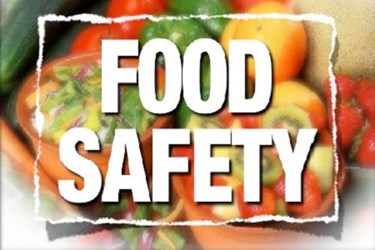Taylor Addresses International Food Safety And Quality Conference
By Laurel Maloy, contributing writer, Food Online

Shanghai, China is 13 hours ahead of Washington D.C. and even further apart in terms of cultural identity and mutual trust. Building a cooperative culture of food safety is a monumental challenge.
Michael R. Taylor, Deputy Commissioner for Foods and Veterinary Medicine for the U.S. Food and Drug Administration (FDA), is attending the China International Food Safety and Quality Conference (CIFSQ) and Expo in Shanghai, China. The conference is in its eighth year and touts the benefits of mutual collaboration, knowledge-sharing, and global dialogue.
According to the CIFSA, Premier Li Keqiang, Head of the National Food Safety Commission, State Council for the People’s Republic of China (P.R.C.), is quoted as saying, “Food is essential, and safety should be a top priority. Food safety is closely related to people's lives and health, economic development, and social harmony. We must create a food-safety system of self-disciplined food companies with integrity, effective government supervision, and broad public support to improve overall food safety.”
The event is hosted by the International Association for Food Protection (IAFP), supported by its global partners, the Global Food Safety Initiative (GFSI), the Grocery Manufacturer’s Association (GMA), and the Institute of Food Technologists (IFT). More than 20 other organizations and agencies – including the U.S. Department of Agriculture (USDA), the Centers for Disease Control and Prevention (CDC), and the U.S. Food and Drug Administration (FDA) – are participating in the 2014 conference. Almost 100 featured speakers are slated to speak on food-safety topics from risk assessment and regulatory affairs to product development and litigation. The conference advertises this event as bringing together the “intelligence, innovation, and leadership of the food-safety industry together in one place at one time.”
Taylor’s speech concentrates on the common culture of prevention and verification in a global, food-safety environment. He speaks about the trade-driven, global food system, as well as the importance of collaboration and cooperation between industries and governments across national borders. Taylor points to the $136 billion the U.S. exports in foods, beverages, and animal feed and emphasizes the large amounts of seafood, fresh fruit, and fresh vegetables it imports.
Taylor also notes he spent the two days prior to the conference in Beijing, meeting with his Chinese food safety counterparts, in order to strengthen understanding and encourage mutual collaboration. He makes clear his belief that government does not make the food, and therefore cannot make it safe. Rather, he puts those responsibilities on those who grow, process, and market food, though he admits all food-industry participants must work together in order to achieve the highest levels of food safety.
Taylor also addresses the Food Safety Modernization Act (FSMA) and its basis in international food safety practices, including CODEX Alimentarius, as well as the seven major rules of FSMA. He notes the four most significant, (Produce Safety, Preventive Controls for both Human and Animal Foods, and the Foreign Supplier Verification Program) are set to be finalized in late 2015 with complete industry compliance by late 2016.
He talks specifically about building a culture of food safety throughout the global food system and Congress’s vision for the same, encouraging Chinese participation and collaboration by pointing to the successes with Mexico.
